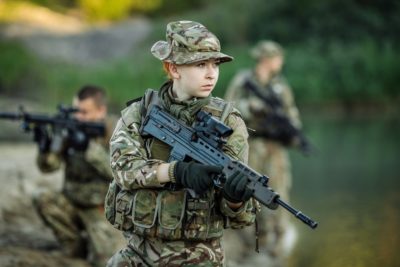Why does the UK have the highest proportion of young infantry deaths in Afghanistan
ForcesWatch comment
The deaths of 6 soldiers recently in one incident was particularly tragic because of how young some of them were. Four of the six who died were under 21 years old; one was only 19.
Looking at the statistics of UK fatalities in Afghanistan, 67 under 21’s have been killed since 2001. That is 17% of the 404 total UK fatalities. Of countries which have lost more than 50 service personnel, the UK has by far the highest proportion of young people receiving fatal injuries. Under 21s make up 13% of US deaths, 9% of French deaths and only 3% of Canadian deaths while Germany had no deaths in the 18-20 age group.
In fact, the UK accounts for 20% of all 18-20 year old fatalities, despite making up only about 7% of all troops in Afghanistan. Of the 20 fatalities of 18 year olds, 11 have been from the UK and 9 from the US.
This is perhaps unsurprising. Soldiers from the UK start younger than almost all other coalition countries, recruiting youngsters only 16 year old. Canada, which contributed 3000 troops to Afghanistan but have now withdrawn from combat duties, also recruits 16 year olds but the vast majority go into the reserves. In fact, the UK is one of less than 20 countries worldwide to sign recruits up at this young age. No other EU country or UN Security council permanent member finds it necessary to do so.
A number of the other main coalition partners recruit 17 year olds including the US, France and Poland – the UK and all of these countries are out of step with international standards which have seen a growing number of countries increase their minimum age of recruitment to 18, under the Optional Protocol on the Involvement of Children in Armed Conflict (part of the UN Convention on the Rights of the Child).
Although the UK is a signatory to the UN protocol, it refuses to raise the minimum age of recruitment, arguing that if the armed forces are unable to enlist potential recruits at 16 and 17 year old, they would be ‘lost to the services’. http://www2.ohchr.org/english/bodies/crc/docs/AdvanceVersions/CRC.C.OPAC.GBR.CO.1.pdf
The UK is far from leading the way in prioritising children’s rights over state needs.
Furthermore, despite a general policy not to send soldiers into war until they are 18, the UK reserves the power to deploy younger recruits in certain circumstances and has done on occasion. http://www.dailymail.co.uk/news/article-2050684/UK-sent-children-Iraq-Afghanistan-despite-Government-ban.html?ito=feeds-newsxml) The United Nations has also called for this policy to be reviewed.
5 of the 6 soldiers who died in the blast in this one incident recently were from the Yorkshire Regiment. Research shows that, as infantrymen, they face a far higher risk of being killed or wounded than other parts of the armed forces (http://www.informedchoice.org.uk).
Furthermore, a far higher proportion of infantry soldiers who are killed are aged 18 or 19 than in the armed forces as a whole.
The researchers state that, “infantry recruits tend to be younger and from more disadvantaged backgrounds than those joining most other branches of the armed forces. Their educational attainment is also lower: provided that potential infantry recruits are fit and healthy, they need only the literacy skills of a five year-old to join. Many join straight from school with their parents’ blessing and are posted to the front as soon as they turn 18.”
With some of the youngest soldiers exposed to the greatest threats, surely it is time to raise the age of recruitment so they can make an informed decision, as an adult, about the risks and the consequences they will face.
See more: recruitment age, risks,
Like what you read?
> Sign up for our newsletter or blog notifications
> Support our work – from just £2 a month










